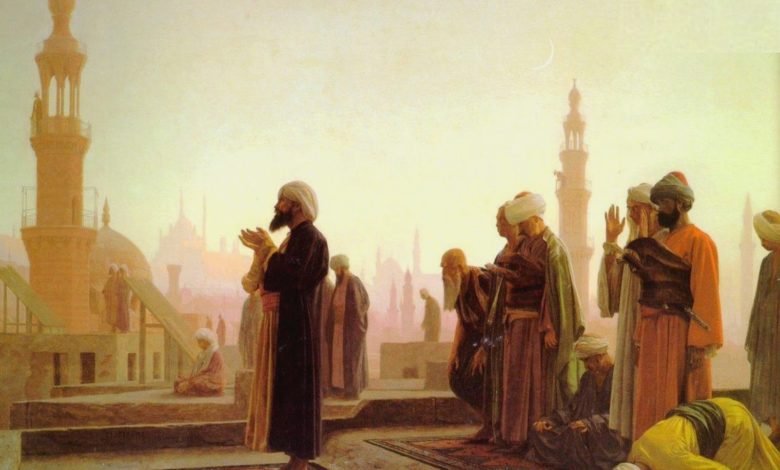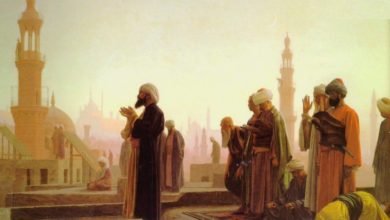Prophet Muhammad Heard the Kalam of Allah during Mi^raj

The Prophet saw the Throne (^Arsh), which is the ceiling of Paradise. The Throne is the largest creation of Allah in size; Allah did not create anything bigger in size than it. The seven heavens and the earth in comparison to the Kursiyy, are like a ring thrown in a desert, and the Kursiyy in comparison to the Throne, is like a ring thrown in a desert. The seven heavens and the earth in comparison to the Throne are like a seed of mustard compared to the ocean. Allah created the Throne as a sign of His Power and He did not create the Throne to sit on it.
Imam Aliy said: “Allah created the Throne to show His Power, and not to sit on it”. It is carried by four angels, and on the Day of Judgment, it will be carried by eight. The Prophet said he was permitted to speak about one of these angels who carry the Throne. In describing this angel, the Prophet told us the distance between his ear lobe and shoulder is the distance a fast-flying bird would cover in 700 years.
Then the Prophet ascended beyond Paradise. He reached a place where he heard the creaking of the pens used by the angels who are copying from the Preserved Tablet. It is at that location Prophet Muhammad heard the Kalam of Allah, which is an attribute of the Self of Allah. He heard the Kalam of Allah which does not resemble our speech–so it is not something that occurs bit after bit. It is not letter after letter or a word that comes after another word. Rather, it is an attribute of Allah which is eternal and everlasting. It does not resemble our attributes. The Kalam of Allah has neither silence nor interruptions. It is an attribute of Allah, and it does not resemble the attributes of the creation.
The Prophet understood several things from hearing this Kalam of Allah. He understood the obligation of the five Obligatory Prayers. At first, Allah obligated fifty prayers. When Prophet Muhammad encountered Musa, Musa told him to make supplication (du^a’) to his Lord to ease the obligation of fifty (50) prayers, because his nation could not handle that. Musa said, “I have experience with the people of Israel, and I know your nation cannot bear that.” So the Prophet asked his Lord to lessen these prayers for his people. Five prayers were eliminated. Once again, Musa told the Prophet to ask Allah to lessen the number of prayers. Allah did. Nine times the Prophet made supplication to Allah to lessen these prayers–until these prayers were lessened to five Obligatory Prayers. So Prophet Musa was a great benefit to us. Had we been obligated to pray fifty prayers a day, this would have been a difficult matter for us.
From the Kalam of Allah, the Prophet also understood that a good deed would be written for the person who intends to do a good deed, even if he did not do it. Also, the good deed performed would be registered for he who performs it as at least ten good deeds–up to 700 good deeds. For some people, Allah would multiply the reward of their deeds more than that. Additionally, if one performs a bad deed, it is registered for him as one bad deed; yet for he who inclines towards committing a bad deed and then refrains from committing it, a good deed would be registered for him. Here one should note the difference between two matters. If a thought crossed a person’s mind about doing something sinful, and this person wavered in this thinking, i.e., considered whether he should do it or not, then he refrained from doing this for the sake of Allah, this is written as a good deed. However, if a person has the firm intention in his heart that he wants to commit a sin, it would be written for him as a sin, even if he does not do it.

